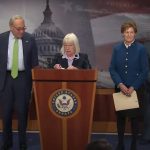According to the Australian National Audit Office (ANAO), pre-Covid responsibilities for human biodiversity emergencies at international airports were clear, effective and well enforced in May 2019.But by February 1, 2020 when the United Nations declared a “public health emergency of international concern”, confusion reigned as State governments deployed their own staff to the international air gates already staffed by federal agencies.The ANAO’s latest audit found protocols had to be rewritten and involved “frequent changes” to incorporate State and Territory health workers into passenger processing, which then differed between airports, attended by different state health authorities.Sydney, Brisbane, Cairns, Gold Coast and Perth screened all flights in the early days of the pandemic, Melbourne and Adelaide only screened “high risk flights” while Darwin, Canberra, Newcastle, Avalon and Port Hedland had no state or territory screening.It was not just for international arrivals but also Australian citizens and travellers wishing to leave the country and confusion led to passenger delays even to go into quarantine. Health workers interviewed described the introduction of enhanced screening as simply “not clear”.“Interviewees spoke of confusion around issues such as to what extent the presence of medically trained state or territory officials at the airport superseded the role of non-medically trained Biosecurity officers …,” the report found.It added the transfer of symptomatic travellers into state health systems was equally befuddled and also led to slowing passenger processing.There was also mandatory training for biosecurity staff but it was not completed by almost a quarter (20 per cent) of staff. Among the six recommendation were that agencies formalise responsibility for biosecurity, departments ensure new and incumbent officers are fully trained and qualified and digital passenger declaration laws support timely large scale contact tracing by state authorities. All recommendations were accepted.Despite the imposition of international travel restrictions, on average more than 41,000 travellers (excluding crew and transit passengers) entered Australia and 56,000 departed the country by air each month in the 2020–21 financial year.The audit was done to ensure air travel was managed effectively post the maritime inquiry into the Ruby Princess cruise ship, the source of 10 per cent of all Covid cases in Australia.
Powered by WPeMatico






